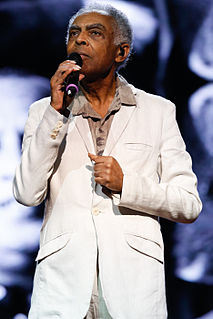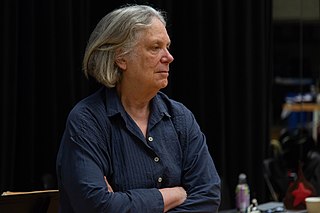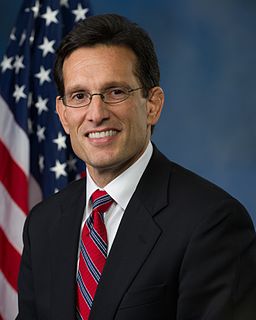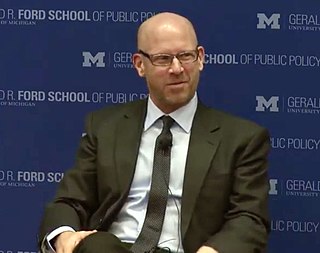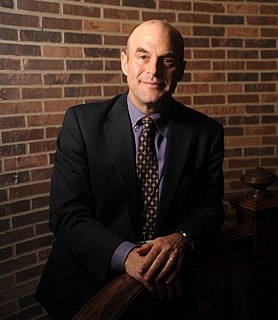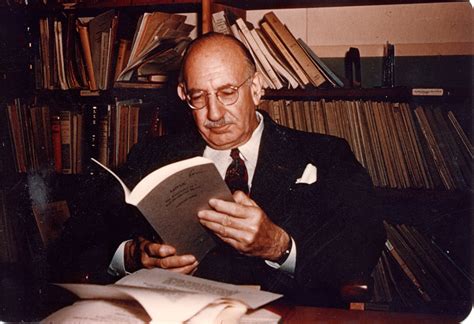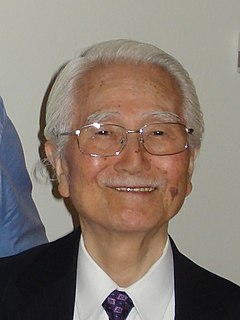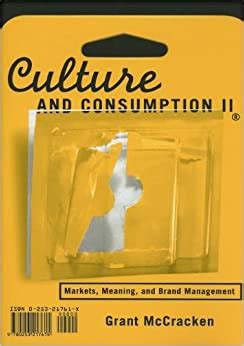Top 1200 Cultural Change Quotes & Sayings - Page 3
Explore popular Cultural Change quotes.
Last updated on April 16, 2025.
I think the driving force for cultural evolution is this desire for groups to be splitting off and separating and forming subgroups insofar as the environment will allow it. We see great cultural diversity and large numbers of cultures per unit area in regions of the world in which the environment is really rich.
Sponsors, corporate endowments, and the heritage of the big fortunes would take care of financing cultural projects when American society was homogeneous. Now it's too complex, it's a mix. Different cultures in collision. I think it starts to be necessary to have a government institution to deal with cultural affairs.
The Japanese director Tadashi Suzuki once stated, 'International cultural exchange is impossible - therefore we must try.' I agree with all my heart. The impossibility of seeing beyond one's own cultural context is a political act in the world and has the potential to break down the rigid assumptions surrounding us.
The gospel is never heard in isolation. It is always heard against the background of the cultural milieu in which one lives. A person raised in a cultural milieu in which Christianity is still seen as an intellectually viable option will display an openness to the gospel which a person who is secularized will not [as such] part of the broader task of Christian scholarship is to help create and sustain a cultural milieu in which the gospel can be heard as an intellectually viable option for thinking men and women.
Sadly, at a time when so much sophisticated cultural criticism by hip intellectuals from diverse locations extols a vision of cultural hybridity, border crossing, subjectivity constructed out of plurality, the vast majority of folks in this society still believe in a notion of identity that is rooted in a sense of essential traits and characteristics that are fixed and static.
We came to recognize that our initial thinking about the keys to educational reform was wrong. The key variables weren't pedagogical. They weren't financial. They weren't curricular. They weren't research. They weren't any of the usual things we've always talked about as the engines of change. The variables were deeply emotional and cultural.
If some things aren't going well, do something; never wait for the things to be ok by themselves! Do something; change the direction, change the parameters, change the criteria, change anything you wish to change! To change is to create a new destiny! Remember, you have thousands of different destinies; change is your instrument to switch from one destiny to another! Remember, you have thousands of different destinies!
The notion of the Internet as a force of political and social revolution is not a new one. As far back as the early 1990s, in the early days of the World Wide Web, there were technologists and writers arguing forcefully that the Internet was destined to become the most important tool for cultural change in human history.
I think that we're making a mistake if we don't see that there is a cultural basis to many illnesses, not just psychiatric ones. Breast cancer would be one prevalent example right now, different kind of cultures surrounding it. If you don't understand the cultural meaning of an illness like that you're going to miss the boat even if you're a great scientist.
UNESCO provides protection for the great cultural institutions. There is something called the intangible cultural heritage list. And the Italians want to put Neapolitan pizza on it. But in order to do that, you have to show that whatever it is that you're trying to protect is under threat. And pizza is totally under threat from Pizza Hut and Domino's...
Since biological change occurs slowly and cultural changes occur in every generation, it is futile to try to explain the fleeting phenomena of culture by a racial constant. We can often explain them-in terms of contact with other peoples, of individual genius, of geography-but not by racial differences.
I was neurotic for years. I was anxious and depressed and selfish. Everyone kept telling me to change. I resented them and I agreed with them, and I wanted to change, but simply couldn't, no matter how hard I tried. Then one day someone said to me, Don't change. I love you just as you are. Those words were music to my ears: Don't change, Don't change. Don't change . . . I love you as you are. I relaxed. I came alive. And suddenly I changed!
I know of no civilization that tolerates or justifies violence, terrorism, or injustice. There is no civilization that justifies the killing of innocent people. Those who are invoking cultural relativism are really using that as an excuse for violating human rights and to put a cultural mask on the face of what they're doing.
Change is the end result of all true learning. Change involves three things: First, a dissatisfaction with self - a felt void or need; second, a decision to change to fill the void or need; and third, a conscious dedication to the process of growth and change - the willful act of making the change, doing something.
Museums have no political power, but they do have the possibility of influencing the political process. This is a complete change from their role in the early days of collecting and hoarding the world to one of using the collections as an archive for a changing world. This role is not merely scientifically important, but it is also a cultural necessity.
If our moral attitudes are entirely the result of nonrational factors, such as gut feelings and the absorption of cultural norms, they should either be stable or randomly drift over time, like skirt lengths or the widths of ties. They shouldn't show systematic change over human history. But they do.
Steven Tepper's Not Here, Not Now, Not That! offers invaluable insights into how social change and uncertainty drive protests over art. With fresh data and perspectives, Tepper makes a compelling case that cultural conflicts are largely homegrown, tied to each community's shifting demographics and values. It's an eye-opening work.
Maybe we, the cultural workers , could apply ourselves. We're not going to resolve it in this moment or even in this generation, but perhaps as some kind of agenda we could invite our writers and cultural workers to address the problem a little more responsibly, because people are suffering tremendously from a want of data.
In such a globally connected world, musicians now have the unique opportunity to express all of the cultural 'mash ups' we are experiencing these days. Akin to the blend of cultures that occurred in early 20th-century New Orleans that led to the birth of jazz, I believe that the world has reached a similar cultural turning point.
The counterculture has nothing to do with Dolce & Gabbana having a 'Hippy Summer' or something. Street kids, and kids who want to live in any sort of counter-cultural experience other than what's being presented by the mainstream media or political climate, or 'normal' cultural climate, are never going to look like that.
Some will say it isn't the government's job to manage who people meet and interact with, but there is clearly a lot it can and should do. It should offer communities much more support to manage demographic and cultural change, including investment in public services and additional housing stock in our migration hotspots.
Two years gives you enough time to grow and to change, and to, you know, change your priorities. Change where you live, change your hair, change what you believe in, change who you hang out with, what’s influencing you, what’s inspiring you. And in the process of all of those changes in the last two years, my music changed.
Most change initiatives either fail or fall far short of original expectations. More often than not, resistance is cultural in nature but the real cause of lots of resistance often is that however much a team might say that it wants to change, the old assumptions are woven, invisibly, deep within the corporate culture, and from this staging ground they act invisibly to sustain the old order. Finding the assumption out and then rooting them out is a special skill. It calls for assumption hunters, I call them.
Social and cultural change, however desirable, should not be effected by the engines of national power. Let us, through persuasion and education, seek to improve institutions we deem defective. But let us, in doing so, respect the orderly processes of the law. Any other course enthrones tyrants and dooms freedom.
Where neoliberalism thrives is in having done something that we haven't seen before. There is a merging of culture, politics, and power under neoliberalism that's unprecedented. They control the cultural apparatuses. And what I mean by "cultural apparatuses" is all those institutions that are about the production of knowledge, values, dispositions, and subjectivities. They control them.
Most people don’t question the practice of eating meat. Many of these people care about animals and the environment, some deeply. But for some reason-force of habit, cultural norms, resistance to change-there is a fundamental disconnect whereby these feelings don’t translate into changes of behavior.
The United Nations has long recognised that the imagination, ideals and energies of young men and women are vital for the continuing development of the societies in which they live. And since its inception in 1948, AIESEC has contributed to this development by serving as an agent of positive change trough education and cultural exchange.
The ideological and cultural revolutions have been promoted successfully in the countryside with the result that the ideological and spiritual qualities of our agricultural working people have been transformed remarkably, and a great development has also been achieved in the realm of cultural life in the countryside.
I always thought that in the countries that the modernity kicks in later, it seems that everything changes on the surface, the physical things change, but inside, things haven't changed, really. This is always the challenge of this kind of community, to make a harmony between the cultural traditions and the modernity of modern life.
It's good to be aware that a certain amount of fear is going to accompany every change in your life - a change for the worse or a change for the better. Knowing this can stop you from moving into fear about Change Itself. If you start fearing change generically you could wind up shrinking from ever making any kind of change at all for the rest of your day - even a change that obviously should be made for your own good.
You are not your mother, your father, your history, or your cultural influences. You are uniquely and originally you. Be bold and daring and fearless and unconventional. Be willing to use your voice in service to your soul. Go on. Rock that damn boat. The wave you create might just change the world.





